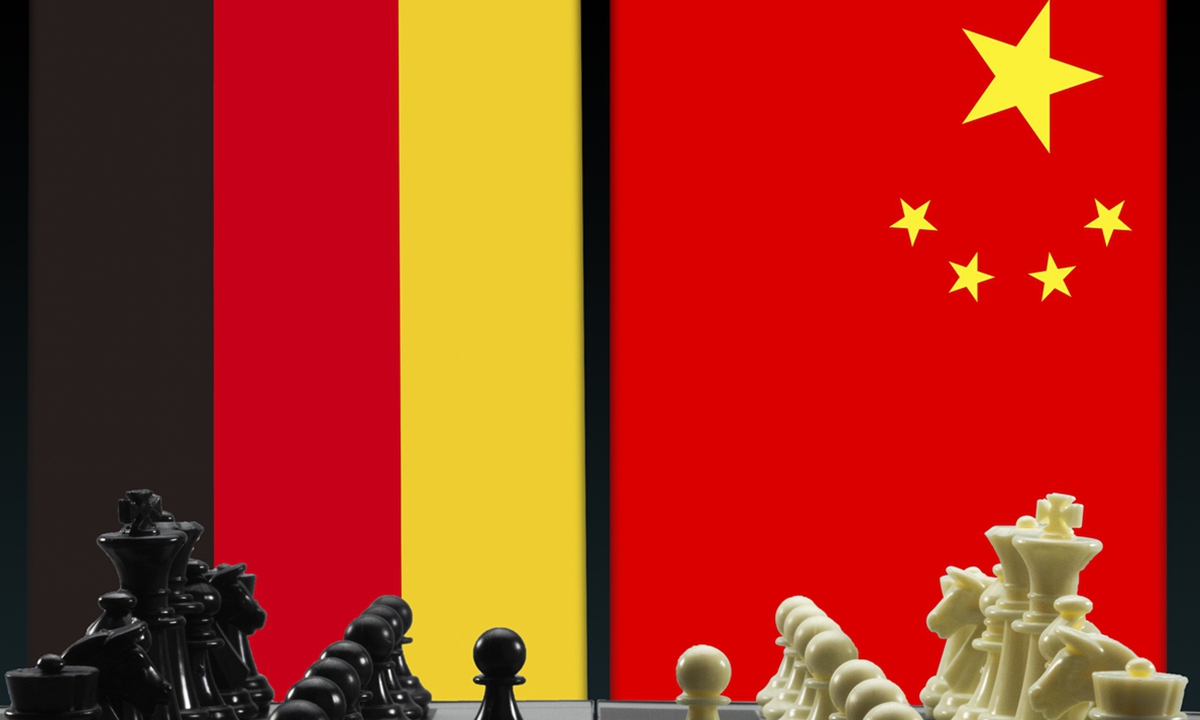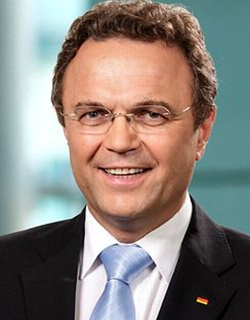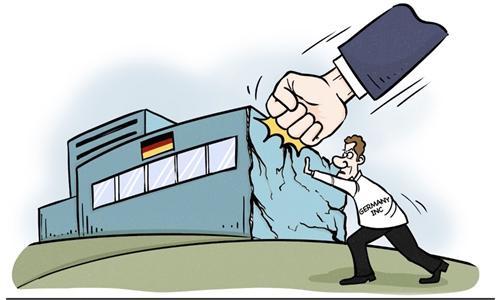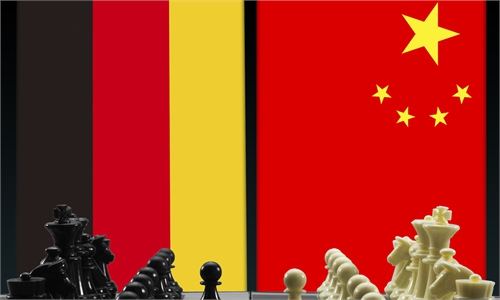Germany must play role of honest broker between different interests: former German federal minister of the interior

Photo: VCG
Editor's Note:
Germany's economy minister reportedly said on Tuesday the government was working on a new trade policy with China to reduce dependence on it. Will there be a shift in Germany's China policy? Will decoupling occur between Germany and China? Hans-Peter Friedrich (Friedrich), former vice president of the Bundestag, former federal minister of the interior, and Chairman of the China-Bridge Association, shared his views in an interview with Global Times (GT) reporters Li Aixin and Bai Yunyi, during the Sixth Taihe Civilizations Forum.
GT: How do you evaluate the current China-Germany ties? In the foreseeable future, what are the biggest opportunities and challenges facing the bilateral relationship?
Friedrich: The past 50 years of German-Chinese relations are a success story: today, Germany and China are closely linked economically and both have benefited greatly. German-Chinese relations, in particular, are proof that the international division of labor brings prosperity gains worldwide. A major challenge is that Germany and the EU play their own role in a multipolar world and that we must deal with each other politically and economically according to fair rules.

Hans-Peter Friedrich Photo: bundestag.de
GT: Recently, there have been quite a few discussions in Germany about "decoupling from China" or "reducing (economic) dependence on China". In your opinion, can Germany really "decouple" from China? Why?
Friedrich: Germany and China cannot decouple from each other without causing economic damage on both sides. And there is no reason for this! German companies visibly feel comfortable in China and want to participate in the dynamically growing Chinese market. Chinese investors in Germany and German exports to China secure jobs in our country.
GT: To what extent do you think the current China-Germany relations and China-Europe relations are affected by the US policy toward China?
Friedrich: The US and Europe are a community of values with a common cultural identity. During the Cold War, the US was the protecting power of Germany and Western Europe, and we belong to a common military alliance. The path of Germany and the US are therefore closely linked. That being said, of course, we also see that the US and the EU do not have identical geostrategic interests. That is why it is important that we as Europeans define and play an independent role vis-à-vis the global powers.
GT: We have noticed that both in Germany and in Europe, the voice of getting tough toward China seems to be getting louder. What are the reasons behind this trend? What are common misconceptions about China do you think exist in Germany?
Friedrich: On the one hand, people still have to get used to China's role as a geopolitical and technological power. At the same time, people in Germany are also realizing that economic interdependencies have an impact on their own political options for action. In our global world, there is no alternative to dialogue and the search for peaceful coexistence. The biggest misunderstanding is that we try to pigeonhole China in our Eurocentric world.
GT: Some observers have been discussing that European strategic autonomy is nearing a "brain death." How do you view the prospect of European strategic autonomy?
Friedrich: The French president's term "brain dead" referred to NATO, which, however, has gained new weight as a result of the war in Ukraine. For example, NATO recently gained two new members, Sweden and Finland. Nevertheless, European defense capability remains for me one of the most important tasks of the European Union. Without European defense capability and strategic autonomy, European integration would get stuck halfway.
GT: In the face of changing international situation, what role do you think Germany should play? What role should Germany play in China-US relations and Russia-Europe relations in particular?
Friedrich: Germany's most important role is to ensure the unity of Europe. This requires a high level of tolerance toward all EU members, but also the persuasiveness to make it clear that we are all in the same boat. Germany must play this role of honest broker between different interests not only within Europe, but also together with the EU vis-à-vis Russia and China and the US. We cannot have any interest in the world once again being divided into two blocs that are irreconcilably opposed to each other; instead, we need a global balance of power that takes into account the interests of all countries.
GT: Do you think the West, China and Russia will fall into a situation similar to a "new cold war"? If so, what would it mean for the world?
Friedrich: I believe that there is a significant danger of a new cold war and that we must counter it with all our might. The great challenges facing humanity can only be overcome together, and not in conflict.
GT: At the 50th anniversary of the establishment of diplomatic relations between China and Germany, what are your expectations/reminders for the bilateral relationship?
Friedrich: I hope that we will look back with gratitude on what has been good and be determined to make the best of the relationship in the future.
GT: What do you think of changes in China over the past decade? Which aspects of China's development left you the most impression?
Friedrich: China has become more self-confident and more active in its foreign policy. Above all, however, China has now even shown global leadership in some areas of technology. That is what impresses me most.


